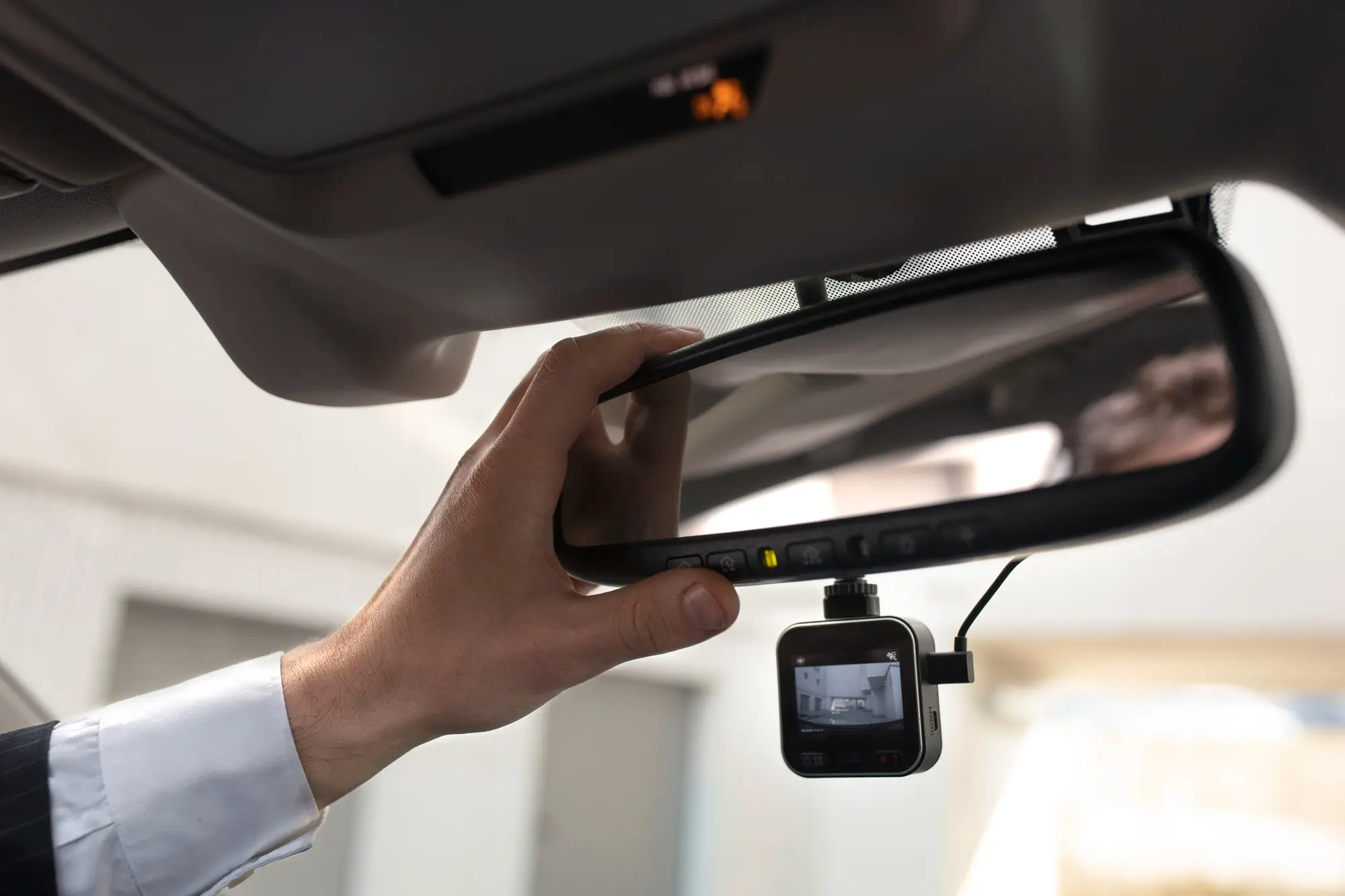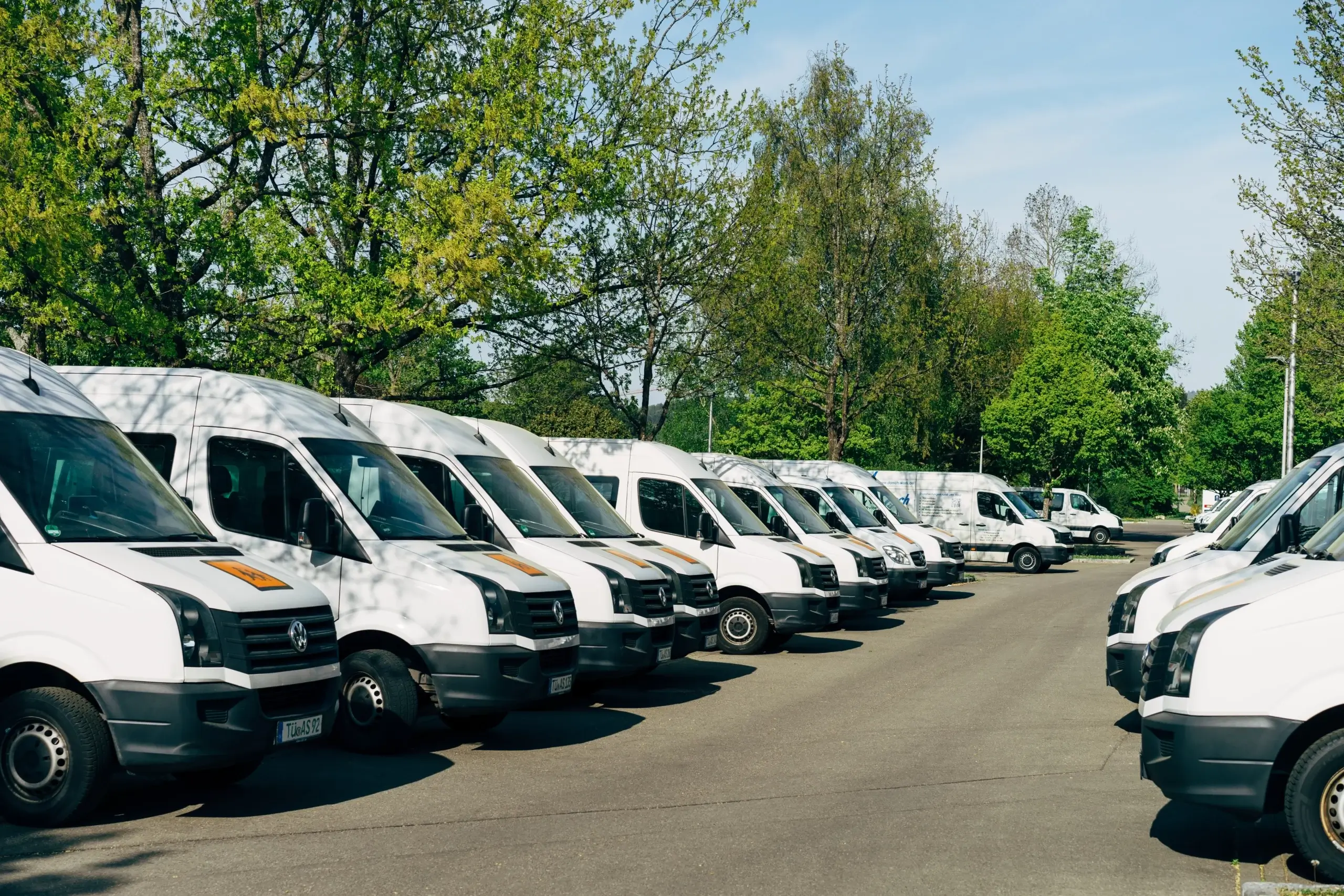In the bustling city of London, the security and comfort of passengers and drivers in the private hire industry have always been a paramount concern. With the increasing integration of technology in transportation, Transport for London (TfL) has put forth regulations concerning dash cams in private hire vehicles, including taxis and minicabs. As a leading provider of TfL approved dash cams, this article will cover our insights into these regulations and how our 4G dash cam aligns seamlessly with these requirements.
What is a TfL-Approved Dash Cam?
TfL’s commitment to ensuring the safety of passengers and drivers in London has led to the endorsement of specific dash cams for use in taxis and private hire vehicles. These TfL-approved dash cams, including those provided by Crystal Ball, meet stringent standards of quality, reliability, and functionality. By installing an approved dash cam, taxi drivers and private hire drivers can ensure that their vehicles comply with TfL’s regulations.
In essence, a TfL-approved dash cam is a specialised camera system designed for licensed London taxis and private hire vehicles (PHVs) to enhance safety and security. These cameras, regulated by Transport for London, are part of an extensive CCTV system intended to prevent and detect crime, reduce the fear of crime, and assist in investigating criminal incidents and motor vehicle accidents.
Essential criteria for CCTV systems in Transport for London’s taxis and private hire vehicles include:
– The capability to store video recordings for at least 28 days.
– Prominent notices inside the vehicle notifying passengers that the trip is under video surveillance.
– The option for audio recording is limited to a maximum duration of three minutes and can only be activated through a panic button; the driver or passenger can push the button to record if they perceive a threat to their safety.
– The CCTV system can include a maximum of four cameras, positioned thoughtfully to monitor key sections of the vehicle.
Benefits of a TfL Approved Dash Cam for Private Hire Drivers and Businesses
Beyond these cameras and CCTV equipment being a requirement for PHVs and taxis operating in London, some of the reasons for using a TfL-approved dash cam include:
Enhancing Safety and Security
A TfL-approved dash cam elevates the safety of both drivers and passengers, acting as a deterrent against potential criminal behaviour. In fact, knowing they are being recorded, drivers and passengers may be less likely to behave poorly or cause damage to the vehicle.
Enhanced Driver Accountability
These dash cams encourage professional and responsible driving behaviour, reducing the likelihood of reckless or negligent driving practices.
Aid in Investigations
These dash cams are instrumental in supporting police and insurance inquiries, facilitating the resolution of incidents and accidents. Dash cams play a crucial role in protecting drivers against false claims, such as staged accidents or exaggerated injury claims.
Compliance with Regulations
By using a TfL-sanctioned dash cam, taxi drivers and private hire vehicle operators demonstrate adherence to Transport for London’s rigorous safety and privacy protocols.
Data Protection
These devices guarantee the secure management and storage of recorded footage, upholding the privacy rights of both passengers and drivers.
Public Assurance
The presence of TfL-approved dash cams boosts passenger trust in using licensed taxi and PHV services, reassuring them by the implementation of protective measures. The use of TfL-approved dash cams can also enhance the public image of taxi and PHV companies by demonstrating their commitment to safety and customer service.
Requirements and Considerations for TfL-Approved Dash Cam Usage
TfL-approved dash cams for private hire vehicles differ from regular dash cams in several key ways, primarily due to the specific requirements and standards set by Transport for London. These differences are designed to ensure the safety, security, and privacy of both private hire drivers and passengers in the context of professional driving services. Here are the main distinctions:
1. Regulatory Compliance: TfL-approved dash cams must comply with strict regulations set by TfL, which include safety standards, data protection, and operational integrity. Regular dash cams, on the other hand, are typically designed for general consumer use and may not adhere to these specific regulatory requirements.
2. Data Security and Privacy: TfL-approved cameras are required to have secure data encryption to protect the recorded footage. This is in line with GDPR and other privacy regulations to safeguard passenger and driver information. Regular dash cams might not offer the same level of data security and encryption.
3. Audio Recording Restrictions: TfL-approved dash cams have stringent guidelines regarding audio recording to protect privacy. In many cases, the audio recording feature must be disabled unless in specific circumstances, such as a response to a panic button. Regular dash cams may not have such restrictions and might record audio continuously.
4. Installation and Integration: TfL-approved dash cams need to be installed in a way that does not obstruct the driver’s view or interfere with the vehicle’s safety features. They must be integrated properly with the vehicle’s existing systems without causing any operational issues. Regular dash cams might not have specific installation standards and could be mounted in various ways that might not be suitable for a professional driving environment.
5. Quality and Reliability: Dash cams approved by TfL are often held to higher standards of quality and reliability, ensuring that they function effectively under various conditions typical in a professional driving setting. Regular dash cams might not be designed to meet these higher standards of durability and consistent operation.
6. Inspection and Maintenance: TfL-approved dash cams in private hire minicabs and vehicles are subject to regular inspections and maintenance checks as part of the vehicle’s licensing requirements. This ensures they are always functioning correctly. Regular dash cams used in personal vehicles typically do not have such rigorous inspection and maintenance requirements.
7. Purpose and Usage: The primary purpose of a TfL-approved dash cam is to enhance the safety and security of both passengers and drivers in a professional setting, along with aiding in legal and insurance matters. Regular dash cams are often used for personal reasons, such as recording scenic drives or as a precaution in case of accidents.
In summary, TfL-approved dash cams are specialised devices tailored to meet specific regulatory standards and operational needs of private hire vehicles, focusing heavily on safety, data security, and compliance with legal requirements. Regular dash cams, while versatile, do not necessarily meet these specialised criteria.
Choosing Your TfL-Approved Dash Cam
Selecting the right TfL-approved dash cam for your licensed taxi or private hire vehicle is a crucial decision that impacts not just compliance with regulations but also the safety and security of your passengers and yourself. Here’s a guide to help you make an informed choice:
Understand the Requirements
Firstly, familiarise yourself with the specific requirements set by TfL for dash cams in London taxis and PHVs. These include compliance with data protection laws, safety standards, and operational integrity. Ensure that any dash cam you consider meets these standards.
Look for Essential Features
A suitable dash cam should offer high-quality video recording, secure data encryption, and reliable operation without interfering with vehicle systems. It should be designed for safety, avoiding obstruction of views or vehicle operation, and the equipment should be tamper-proof to protect the integrity of recorded video data.
Audio Recording Considerations
While audio recording can be a feature, remember that TfL guidelines restrict its use. Ensure that the dash cam either lacks this feature or has the capability to disable it, except under specific circumstances like activation via a panic button.
Installation and Maintenance
Choose a dash cam that is easy to install and maintain. It should not require extensive modifications to your vehicle and should be resilient against wear and tear. The CCTV system, including cameras and recording devices, must be installed according to the manufacturer’s instructions and should not obstruct the driver’s view or interfere with the vehicle’s original equipment. The system must be designed to avoid causing harm or discomfort to passengers and drivers, for instance through impact in the event of a collision. Regular maintenance checks are crucial to ensure continuous operational standards.
Data Storage and Security
Opt for and install a dash cam that offers secure and encrypted storage solutions. The ability to retain footage securely for the required period, typically up to 28 days, is essential. Be mindful of how the data is stored and accessed, adhering to GDPR guidelines.
Activation Methods
Consider the different activation methods available, such as door switches, time delays, or response to specific events like sudden braking. These features can enhance the functionality and efficiency of the car dash cam.
Seek Expert Advice
If in doubt, seek advice from experts or directly from TfL. They can provide guidance on the best dash cams that meet the regulatory requirements and fit your car and specific installation needs.
Choosing the Right Provider From the Approved List
When selecting a dash cam provider, it’s vital to choose a company that not only understands the complex requirements of TfL regulations and is on the approved list of providers but also offers a product that seamlessly integrates into your daily operations. Here at Crystal Ball, you can benefit from:
– Multi-Award Winning Expertise: Crystal Ball has been recognised multiple times for its excellence in fleet management solutions. This recognition is a testament to our commitment to quality and innovation in the field.
– Comprehensive Solutions: We offer a range of products that go beyond just dash cams. Our expertise in fleet management means you’re not just getting a camera; you’re integrating a comprehensive solution that enhances the overall safety and efficiency of your fleet.
– User-Friendly Technology: Our team understands the importance of user experience. Our dash cams and fleet management tools are designed with the user in mind, ensuring ease of use without compromising on functionality.
– Exceptional Customer Support: Choosing Crystal Ball means gaining a partner who is invested in your success. Our customer support is known for being responsive, helpful, and dedicated to resolving any issues swiftly.
Remember, investing in a TfL-approved dash cam is not just about complying with regulations; it’s about committing to the safety and security of your passengers and yourself. By choosing Crystal Ball, you’re opting for peace of mind, knowing that your fleet management needs are in the hands of a multi-award winning, experienced, and reliable provider.


